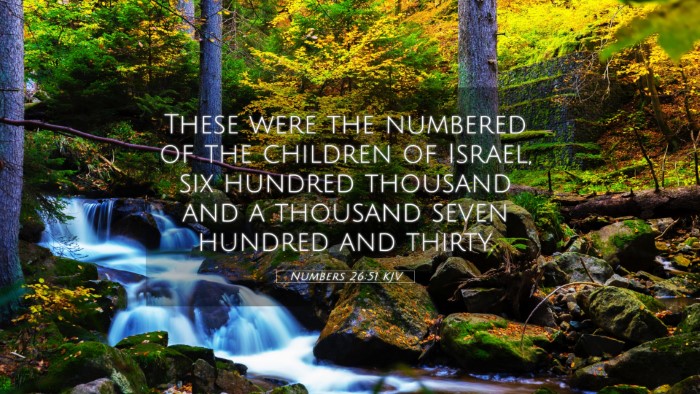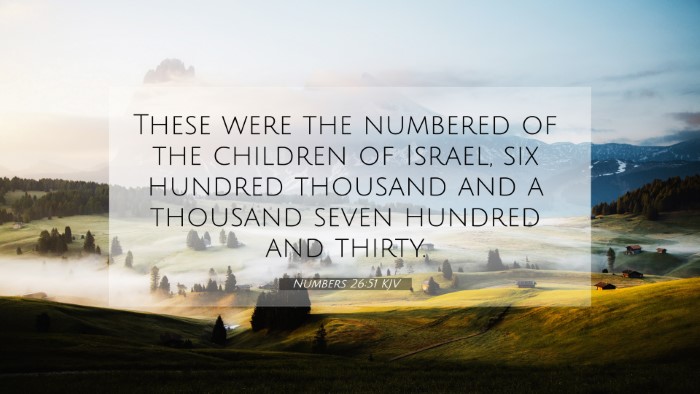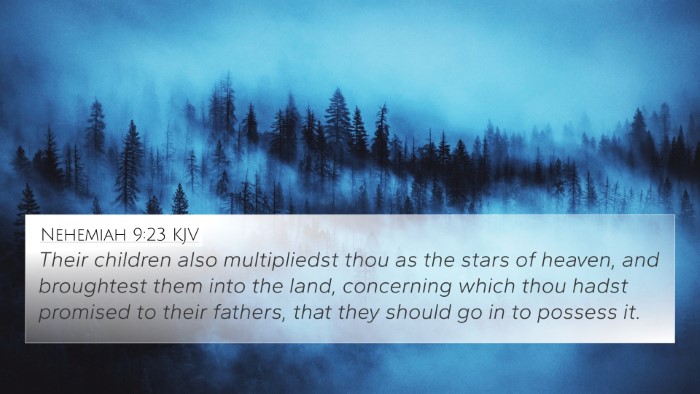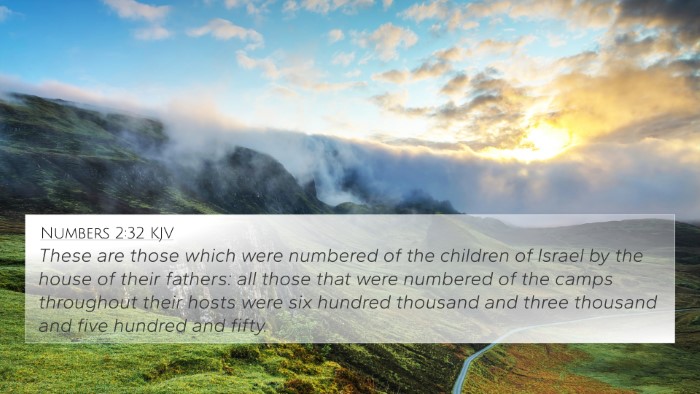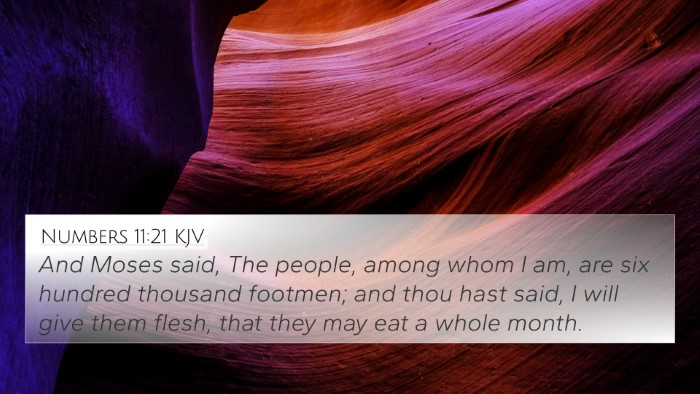Understanding Numbers 26:51
Numbers 26:51 states, "These are the numbered men of the children of Israel, six hundred and one thousand seven hundred and thirty." This verse concludes the account of the second census in the Book of Numbers, emphasizing the organization and structure of the Israelites as they prepared to enter the Promised Land.
Commentary Insights:
- Matthew Henry:
Henry highlights the importance of this census as a means to demonstrate God's faithfulness to His promises. The number reflects not just the existing population but also God's continued support for Israel, as He promised to multiply them. This numerical account offers reassurance of His covenant with Abraham, Isaac, and Jacob.
- Albert Barnes:
Barnes notes that the counting of soldiers was crucial for understanding the military capacity of Israel. He also points out that the exact population figures underscore the orderly governance established by God, which was necessary for their future conquests in Canaan.
- Adam Clarke:
Clarke emphasizes the necessity for accountability and organization within the Israelite community. He states that the numbering process established a foundational element for tribal inheritances and their roles in society. Additionally, the specific figure indicates that God was directly involved in their growth and organization.
Significance of the Census:
The census in Numbers 26:51 illustrates several key theological themes:
- Divine Providence: This verse reinforces the belief that God is actively engaged in the lives of His people, guiding and protecting them.
- Organizational Structure: It shows the importance of organization and communal identity, pivotal for Israel's future as a nation.
- Fulfillment of Promises: The growth in numbers represents the fulfillment of God's promise to multiply the descendants of Abraham.
Bible Verses that Relate to Numbers 26:51:
- 1 Peter 2:9: Highlights the chosen status of believers, paralleling Israel's chosen nature as God's people.
- Deuteronomy 1:10: Reflects on how God multiplied the Israelites, as seen in the census.
- Genesis 17:6: God's promise of multiplying Abraham’s descendants ties directly into the census figures.
- Matthew 28:19-20: The Great Commission echoes the theme of growth and the organized mission of God's people.
- Psalm 147:4: God's oversight of nations aligns with the structured numbering of the Israelites.
- Hebrews 11:12: References the growth of Abraham’s family under God’s promise, relating to Numbers 26.
- Acts 15:14: Relates to God's people and expansion of His church, similar to the census of Israel.
Cross-Referencing Biblical Texts:
To delve deeper into the connections between Bible verses regarding Numbers 26:51, it’s beneficial to use various tools for cross-referencing. This can involve:
- Utilizing a Bible concordance to find relevant themes and verses that expand on covenant and community.
- Employing a Bible cross-reference guide to identify additional parallels in the narrative.
- Practicing cross-reference Bible study methods to explore the interconnectedness of scripture.
Theological Analysis:
Engaging in a comparative Bible verse analysis provides insight into how Numbers 26:51 reflects broader themes in scripture. By understanding the organization of God’s people in the Old Testament, one can identify parallels in the mission and identity of the church today.
Inter-Biblical Dialogue:
This verse invites believers to explore the relationship between Old and New Testament themes, underlining God's enduring promise and guidance. As noted in Hebrews 13:8, “Jesus Christ is the same yesterday and today and forever,” the consistency of God’s plan from the Israelites’ census to today's believer's calling highlights the importance of understanding where we fit in God’s overall narrative.
Conclusion:
Numbers 26:51 serves not just as a historical record but as a profound reminder of God’s faithfulness, the significance of His people, and the continuity of His plan through Scripture. By engaging with this verse through cross-referencing and understanding its context, we gain a clearer picture of God’s unfolding story in both the Old and New Testaments.
Practical Application:
As we reflect on this verse and explore its connections, consider asking yourself:
- What does this passage reveal about God's character and His promises?
- How can we apply the principles of organization and community found in this scripture to our own lives?
- In what ways does the census reflect our identity as a part of God's chosen people today?

